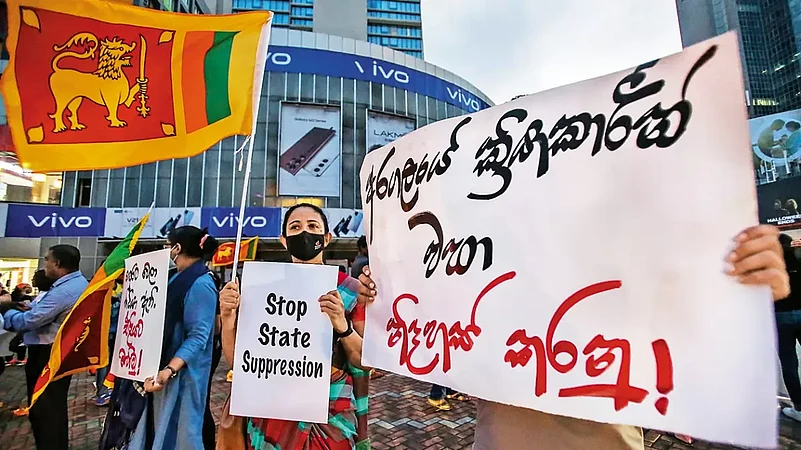An uneasy calm: Colombo after Gotagogama
Four months ago, the vast majority of Sri Lankans, including those who had voted for him, saw Gotabaya Rajapaksa as a nightmare the country had to wake up from. What angered people primarily were the shortages: of gas, of fuel, and of medicine. Enraged and confused, they quickly took to the streets. From March, many of them, with their families, camped at Galle Face, a site they later renamed as Gotagogama.
These people were emboldened by what they saw as the president’s lack of decisiveness. As far as they were concerned, their hatred for the man at the top brought them all together. Even if their programme had no proper manifesto, no plan, no common ground, apart from their aim of evicting the president, they did not care. After months of agitating, they finally got what they wanted: on 13 July, he heeded their call and left the country.
Advertisement
Back on track
Four months later, Rajapaksa has become a distant dream. Sri Lankans are getting on with their lives, making themselves busy, wary of many issues but relieved that they have got rid of the man who they say ruined their country and their lives.

In July, Colombo seemed dreary, lifeless, grey, empty. The country had no fuel. Power cuts had peaked from five hours to seven. The banner by the minivan carrying the solar panels which generated electricity at Gotagogama read: ‘If you can’t give us electricity 24/7, we will get our own.’ People were worried about the inconveniences that beset them, and this brought them into a platform occupied by civil society groups and rights activists.
Advertisement
Since then, the country has seen a massive transformation. Fuel queues that once dragged on for miles have dried up. Power cuts, which peaked up to 13 hours a day in April, have come down to two. Through an agreement with the World Bank, the island’s main gas supplier has eradicated shortages in the market.
Not quite normal
Things have returned to normal. But, in another sense, they have not. Sri Lanka declared its first sovereign debt default since independence in April. This has dried up funding from multilateral agencies and cut access to capital markets. Negotiations with the IMF are still ongoing, though a staff-level agreement has been finalised.
For Sri Lankans, these negotiations have not yielded any benefits. The government used to subsidise every public utility. Now it has cut back on those subsidies. The result has been the steep transformation, and obliteration, of a once vibrant middle-class. The government has also hiked income taxes, further eroding their prospects.
The phrase on everyone’s lips is, “Things will never be the same.” Most of them feel that the change they asked for has not come. They want an election to set things right. As much as they asked for a regime change, they also demanded a “system change.”
Learning to adapt
Advertisement
At the same time, they have learnt to bear, to adapt. Sri Lanka has never lived through the kind of austerity it is living through now. Perhaps for that reason, people have noted the need for reforms. Many of them contend that the bureaucracy needs a radical overhaul: this is why opinion over recent reforms, like the opening up of the country’s petroleum sector, remains divided as much between people as between political parties.
Though the country’s president, Ranil Wickremesinghe, is hardly very popular, he has managed to survive. Seen by some as a thinker, he is now being hailed as a doer, even by his critics. “I never thought he would stay this long,” a voter told me. “He has earned his reputation for being a political player.” But this may well be a ticking bomb. Sri Lanka’s middle-classes are restless, assertive, and vocal. If shortages were what brought down Rajapaksa, inflation, and the prospect of further austerity vis-à-vis IMF negotiations, may well bring Wickremesinghe down.
Advertisement
It was Sri Lanka’s middle-class that evicted one president from power. If his successor does not deliver, it will be this class that will see him leave – through the ballot box, or yet another island-wide campaign. As of now, only time can tell. And as things stand, time is not on President Wickremesinghe’s side.
(This appeared in the print edition as "Colombo Diary")
Uditha Devapriya is Chief International Relations Analyst at Factum, an Asia-Pacific focused think-tank based in Colombo




















